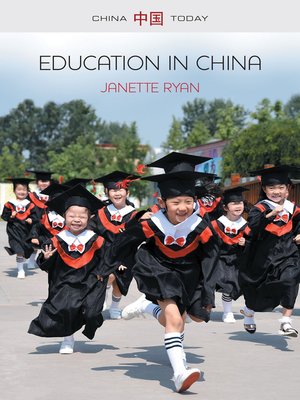
Sign up to save your library
With an OverDrive account, you can save your favorite libraries for at-a-glance information about availability. Find out more about OverDrive accounts.
Find this title in Libby, the library reading app by OverDrive.



Search for a digital library with this title
Title found at these libraries:
| Library Name | Distance |
|---|---|
| Loading... |
Throughout its history, education in China has played a pivotal role in the nation’s governance, civic society, and the social and cultural lives of its citizens. Today we see a nation grappling with how to modernize and internationalize its education system while still retaining China’s intellectual traditions and values in the face of growing educational inequalities.
This book analyses the historical and contemporary place of education in China and how the past has influenced today’s trends. Recent fundamental educational reforms have been driven by the need for continuing economic development and a highly skilled workforce, at the same time fulfilling the aspirations of its citizens and their desire for the prestige education brings. Moreover, ideological education plays a key role in enlisting citizens to the national cause. Although China has ambitious plans for its education system, several problems remain, including an examination-obsessed system and highly competitive culture which skew the social fabric, dominating family life and childhoods.
This accessible analysis will be a welcome resource for students of comparative education as well as those across the social sciences interested in Chinese society.
This book analyses the historical and contemporary place of education in China and how the past has influenced today’s trends. Recent fundamental educational reforms have been driven by the need for continuing economic development and a highly skilled workforce, at the same time fulfilling the aspirations of its citizens and their desire for the prestige education brings. Moreover, ideological education plays a key role in enlisting citizens to the national cause. Although China has ambitious plans for its education system, several problems remain, including an examination-obsessed system and highly competitive culture which skew the social fabric, dominating family life and childhoods.
This accessible analysis will be a welcome resource for students of comparative education as well as those across the social sciences interested in Chinese society.







